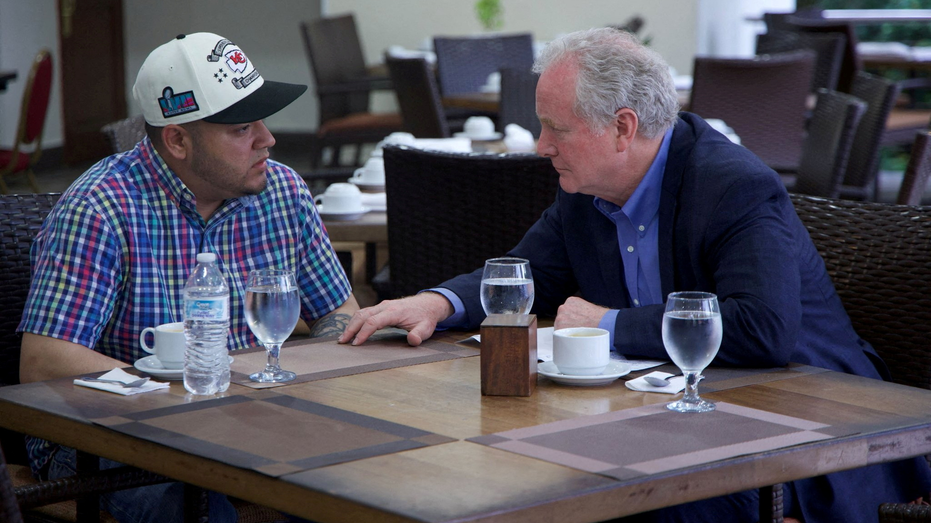In the ongoing discourse surrounding criminal justice reform and immigrant rights in the United States, the case of Abrego Garcia has emerged as a focal point, highlighting the complexities and challenges of due process in the modern legal landscape. Advocates on the left are rallying around Garcia’s story, which exemplifies the urgent calls for a justice system that upholds the principles of fairness and accountability. The narrative of Garcia not only paints an intricate picture of personal struggle but also raises questions about the broader implications of due process for marginalized communities.
At the heart of this matter is Abrego Garcia, a man whose life took a jarring turn due to his interactions with law enforcement and the judicial system. Detained by immigration officials under controversial circumstances, Garcia’s situation has become emblematic of the precarious position many immigrants find themselves in. The left-leaning advocates spotlight Garcia not merely to advocate for him as an individual but to highlight system-wide issues that demand attention and reform.
Due process, a constitutional guarantee, is meant to ensure that all individuals—regardless of their immigration status or background—are afforded a fair legal process. However, many believe this principle is under siege, particularly for minority groups who face systemic discrimination. Garcia’s case has stirred significant ire, as many believe it exemplifies the disparities experienced by immigrants in the justice system.
As developments in the Garcia case unfold, advocates and legal experts are emphasizing the importance of establishing a foundation in which due process is paramount. Proponents argue that the very essence of democracy rests upon protecting the rights of all individuals. This call to action has encouraged lawmakers and activists alike to reassess existing policies and practices that could undermine the enforcement of due process.
The circumstances surrounding Garcia’s arrest present a stark example of the pitfalls within current systems. Reports indicate that during a national crackdown on undocumented immigrants, Garcia was apprehended despite having lived in the U.S. for years and established roots in the community. His arrest raised significant alarms about the tactics employed by immigration officials. Critics assert that these mass round-ups often overlook individual stories and circumstances, failing to recognize those who are integral to their neighborhoods.
Garcia’s personal journey has struck a chord with many. Having traveled to the U.S. seeking a better life, he quickly became a part of a vibrant community, contributing both economically and socially. His story resonates with those who view him not merely as a number in a bureaucratic system but as a father, a colleague, and a friend to many. The outcry for due process focuses not only on legal rights but also on humanity and the acknowledgment of individual stories behind larger statistics.
Advocates argue that due process should serve as a shield protecting the rights of individuals like Garcia from arbitrary actions. They point to Garcia’s experience as a warning of what happens when due process is not rigorously applied within immigration enforcement. Critics of current policies claim that they can lead to wrongful detentions, family separations, and unjust deportations, urging for reform that would prevent these occurrences in the future.
Reports from various advocacy groups detail similar accounts across the nation, noting a pattern of unfair treatment experienced by many immigrants. They highlight the fact that the immigrant community is often subjected to harsher realities, displaying the urgent need for reforms that would fundamentally safeguard their rights under the law.
Furthermore, legal experts have weighed in, pointing out that the current legal framework for immigration often lacks sufficient protections for due process. They advocate for a comprehensive review of immigration laws to ensure that they align with fundamental human rights principles. The debate extends beyond policy changes; it involves examining the very principles that underpin the American legal system and questioning how they can be evolved to better serve a diverse population.
Yet, beyond the legal implications, the discussion surrounding Abrego Garcia’s situation has invited broader conversations regarding the impact of systemic injustices. This case pushes to the forefront the challenges faced by vulnerable communities and the need for advocacy that champions equity and justice. By mobilizing around Garcia’s story, advocates are hoping to create a ripple effect that could influence opinions and drive legislative change.
As the spotlight on Garcia continues, it provides a unique opportunity for collective reflection on values of empathy, justice, and what it means to uphold the principles of due process. The rallying cry for Garcia is not just a single issue; it encapsulates the struggle of many seeking recognition and protection within a system that often operates at odds with these ideals.
The legal community is now being called to action. In response to public pressure and increasing scrutiny, some lawmakers are beginning to introduce bills aimed at reinforcing protections for immigrants and ensuring that due process is uniformly applied. These proposed measures seek to safeguard rights, emphasizing transparency and accountability in the enforcement of immigration laws.
However, the road to reform is not without its challenges. Political divisions continue to complicate discussions about immigration and criminal justice reform. Factors such as partisan politics can impede progress, leading to significant debates on the best paths forward. Proponents of reform must remain steadfast in their commitment to advocating for those who are marginalized, standing in solidarity with the stories of individuals like Garcia who are at the mercy of a complex legal system.
The implications of the Garcia case extend far beyond his personal situation; they challenge society’s understanding of justice in a multicultural context. As advocates continue to push for systemic changes, Garcia’s narrative spirals into a broader dialogue regarding the changing face of America and the necessity of continual vigilance to ensure that everyone is treated fairly under the law.
Moving forward, the impact of Garcia’s case could shape future conversations surrounding immigration reform, justice policies, and the fundamental rights afforded to every member of society. With due process at the forefront, advocates are striving not just to help one individual but to influence a movement that seeks lasting change.
In conclusion, the plight of Abrego Garcia serves as more than a single story—it stands as a beacon for broader values distilled in the pursuit of justice and equity. For advocates, his name embodies the profound need for systemic change, emphasizing that the call for due process is not just a demand for legal reform, but a quest for fairness, humanity, and dignity for all. As the narrative continues to unfold, it reinforces the belief that meaningful change is possible when individual stories evoke collective action and drive societal reflection.
































